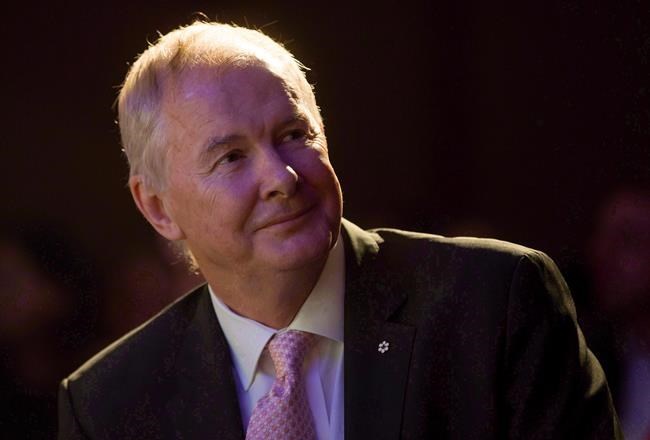CALGARY — Now that a new price tag has been put on a possible Calgary bid for the 2026 Olympic and Paralympic Games, a comparison to the most recent games in Canada is inevitable.
The bid corporation Calgary 2026 has put forth a $5.2-billion draft hosting plan that asks for $3 billion in public money from the city, provincial and federal governments.
The chief executive officer of the 2010 Winter Games in Vancouver and Whistler, B.C., says the $7.7 billion that's been attached to those games is inflated and that the actual cost was closer to $4 billion.
The cost of the rapid transit line from the Vancouver airport to downtown and the construction of a waterfront convention centre shouldn't be lumped in with games costs because they were never VANOC's projects, according to John Furlong.
The B.C. government decided independently of the organizing committee to build them in time for 2010, but the Canada Line and the convention centre were not in VANOC's bid to the International Olympic Committee or hosting plan, he said.
"When you put these two projects together, you get to over $3 billion," Furlong told The Canadian Press.
"It's really easy to add that into the Olympic bid, but it frankly isn't fair. It was never part of the discussion. It's a question of what was necessary for us and what wasn't."
Whether the taxpayer makes that distinction is another matter.
An obvious theoretical comparison would be since Calgary doesn't have a downtown train link to the airport, and one was built for 2026 with government money even though Calgary 2026 didn't ask for it, would the taxpayer still consider it a games cost?
But Furlong doesn't want VANOC saddled with the $7.7 billion number when the rail line and the convention centre were not considered necessary to hosting the games.
VANOC had a games transit plan that didn't include the rail line.
The press centre was going to be in a $20-million temporary building, but VANOC ended up entering into a business agreement with the province to use the convention centre for press facilities.
"It needs to be explained," Furlong said. "It's important to differentiate these because the organizing committee in all of this, kind of takes a bit of a beating and it's not fair."
An Olympic Games Impact Study for the 2010 Games published by the University of British Columbia in 2013 put games operating and capital costs at $4.08 billion and said "Olympic-induced infrastructure projects" were an additional $3.679 billion.
VANOC budgeted about $2.5 billion for operations and capital construction costs.
But since improving the Sea to Sky Highway from Vancouver to Whistler was included in the bid presentation to the IOC, Furlong says it is reasonable to include that $600 million and the $900 million spent on security as "Olympic" costs.
"If you were going to include the road and you were going to include security, I wouldn't be prepared to argue," he said.
The Calgary Bid Exploration Committee estimated in June 2017 that $4.6 billion would be needed to host the 2026 Games.
The Calgary 2026 draft hosting plan released earlier this week included $1.1 billion in contingency funds "to mitigate risk."
The 2014 Winter Games in Sochi, Russia, was said to cost $50 billion.
Furlong believes money required for actual games operations would have been comparable to Vancouver, but because everything else — sport venues, roads, bridges, rail lines and a tunnel — were built from scratch, the total became a number that frightened potential future host cities.
"Calgary is a highly advanced city infrastructure-wise. So is Vancouver," he pointed out.
Donna Spencer, The Canadian Press


